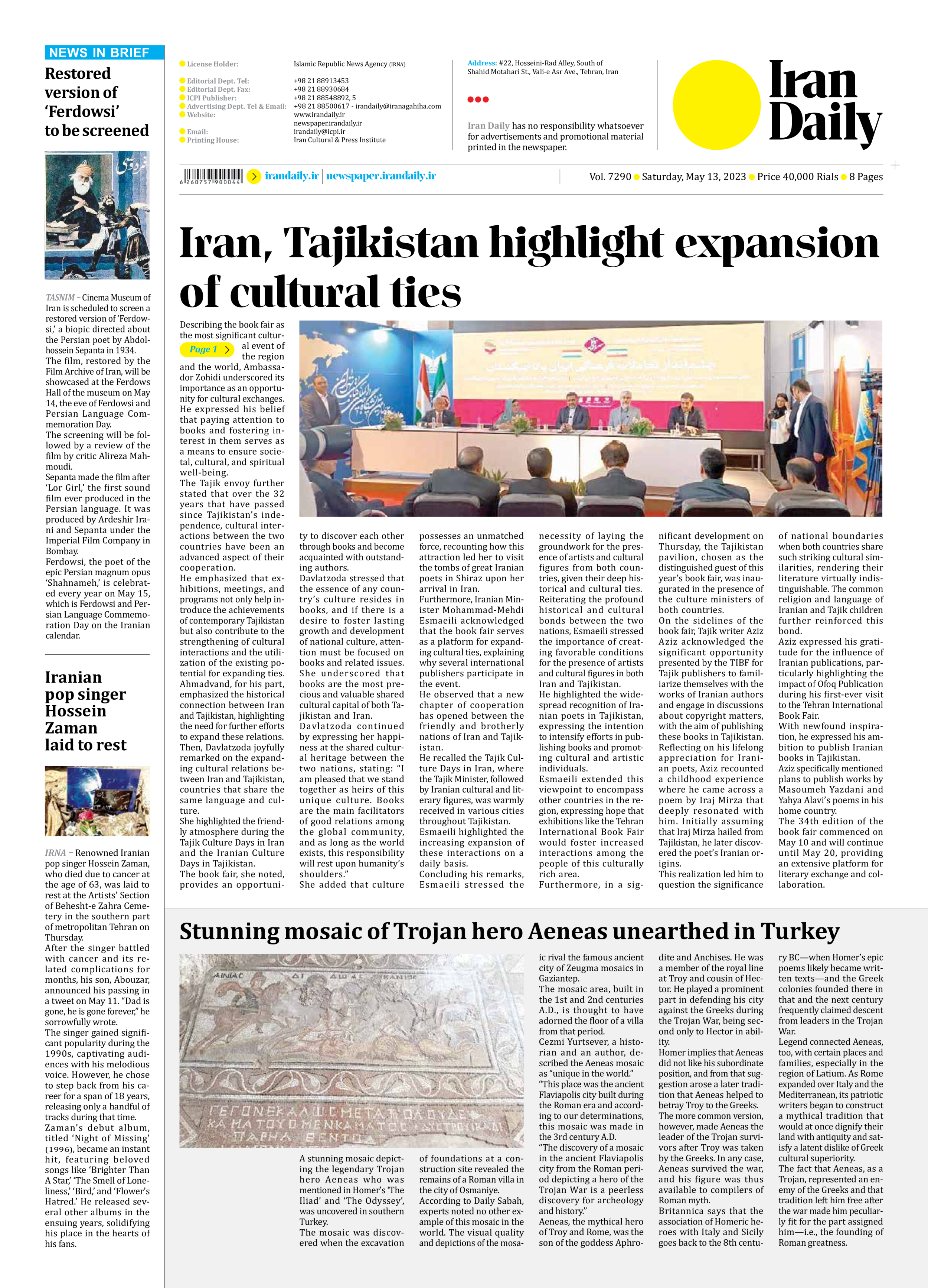
Stunning mosaic of Trojan hero Aeneas unearthed in Turkey
A stunning mosaic depicting the legendary Trojan hero Aeneas who was mentioned in Homer’s ‘The Iliad’ and ‘The Odyssey’, was uncovered in southern Turkey.
The mosaic was discovered when the excavation of foundations at a construction site revealed the remains of a Roman villa in the city of Osmaniye.
According to Daily Sabah, experts noted no other example of this mosaic in the world. The visual quality and depictions of the mosaic rival the famous ancient city of Zeugma mosaics in Gaziantep.
The mosaic area, built in the 1st and 2nd centuries A.D., is thought to have adorned the floor of a villa from that period.
Cezmi Yurtsever, a historian and an author, described the Aeneas mosaic as “unique in the world.”
“This place was the ancient Flaviapolis city built during the Roman era and according to our determinations, this mosaic was made in the 3rd century A.D.
“The discovery of a mosaic in the ancient Flaviapolis city from the Roman period depicting a hero of the Trojan War is a peerless discovery for archeology and history.”
Aeneas, the mythical hero of Troy and Rome, was the son of the goddess Aphrodite and Anchises. He was a member of the royal line at Troy and cousin of Hector. He played a prominent part in defending his city against the Greeks during the Trojan War, being second only to Hector in ability.
Homer implies that Aeneas did not like his subordinate position, and from that suggestion arose a later tradition that Aeneas helped to betray Troy to the Greeks.
The more common version, however, made Aeneas the leader of the Trojan survivors after Troy was taken by the Greeks. In any case, Aeneas survived the war, and his figure was thus available to compilers of Roman myth.
Britannica says that the association of Homeric heroes with Italy and Sicily goes back to the 8th century BC—when Homer’s epic poems likely became written texts—and the Greek colonies founded there in that and the next century frequently claimed descent from leaders in the Trojan War.
Legend connected Aeneas, too, with certain places and families, especially in the region of Latium. As Rome expanded over Italy and the Mediterranean, its patriotic writers began to construct a mythical tradition that would at once dignify their land with antiquity and satisfy a latent dislike of Greek cultural superiority.
The fact that Aeneas, as a Trojan, represented an enemy of the Greeks and that tradition left him free after the war made him peculiarly fit for the part assigned him—i.e., the founding of Roman greatness.







